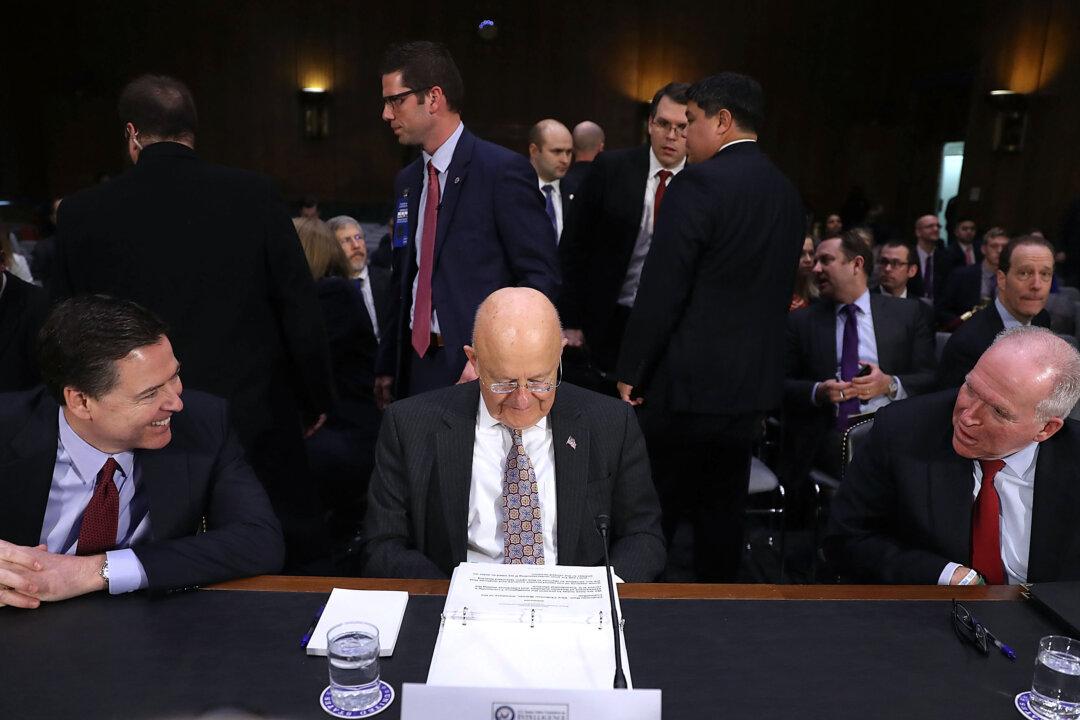Commentary
Just one day after the midterm elections, President Donald Trump asked Attorney General Jeff Sessions for his resignation and received it. Trump then elevated Matthew G. Whitaker, Sessions’s chief of staff, to the role of acting attorney general.
This move, on Nov. 7, ended almost two years of a contentious tenure in which the president and his attorney general were often at odds—at least publicly—on how to deal with matters relating to the Justice Department (DOJ).
The biggest problem that constantly caused drama during Sessions’s two years at the helm of the DOJ was having to recuse himself from overseeing any of the 2016 election-related investigations. As a key member of Trump’s campaign team, who was repeatedly accused by top Democrats of being some sort of Russian agent, Sessions had to recuse himself. A person can’t be in charge of investigating a campaign they had a role in—the conflicts of interest are apparent.
For that reason, Sessions kept his distance and all of these investigations were handled by his top lieutenant, Deputy Attorney General Rod Rosenstein. As I’ve explained in previous columns, such as “Rod Rosenstein: The Man With The Most Thankless Job In America” and “The Circus of Chaos And Confusion Around Rod Rosenstein Is Deliberate,” not only is Rosenstein in charge of the Robert Mueller special counsel investigation, he’s also in charge of leading extensive leak investigations, some of which extend right into the U.S. Congress itself.
DOJ Inspector General Michael Horowitz dug deeply into the Crossfire Hurricane plot and exposed all the major players. He’s now preparing the report on his team’s year-long investigation into the FBI’s abuse of the Foreign Intelligence Surveillance Court. Meanwhile, Rosenstein has had to keep Congress at bay since material evidence from ongoing investigations can’t be made public until the investigations have concluded—no matter how loudly members of Congress complain about this.
And then there’s also the issue of leaks of classified information that came from Congress. Because Rosenstein is in charge of the leak hunt, that means it’s extremely likely he’s leading investigations that are targeting key members of the selfsame committees that are loudly yelling for him to hand over more classified documents.
So this is where things have stood for almost two years, with Sessions off doing other things—such as dealing with human- and sex-trafficking networks, illegal immigration, the opioid epidemic, and more—while Rosenstein, Horowitz, and U.S. Attorney John Huber quietly investigated the Spygate scandal and built their cases.
It appears the first phase, which just ended, was comprised of two years of slowly exposing each of the Spygate plotters, pulling their fangs and removing them from power, then building cases against them. This could happen while Sessions stayed where he was.
But the next phase won’t work with a recused attorney general. The prosecution phase needs a hands-on overseer who doesn’t have any of the numerous conflicts of interest that hampered Sessions from the day of his swearing-in. There can’t be any conflicts of interest that the defense lawyers and the media can use to attack the state’s case. Another year of Sessions ducking out of the room while deferring all questions about these things to Rosenstein wasn’t going to cut it.
Trump and Sessions both understood that, and that’s why Whitaker was carefully moved into place in advance as Sessions’s chief of staff in September last year. He garnered much interest when he wrote a July 2016 op-ed for USA Today, in which he stated he'd be willing to indict Hillary Clinton for the massive exposure of classified information she caused with her private server. That means they’ve been preparing for this move for at least a year.
Spygate is a massive scandal that dwarfs Watergate. Top intelligence and law enforcement officials conspired together to hide what Clinton did and what she caused through that private server she insisted upon using. Because they compromised themselves to protect her so that she could run for president, it became extremely important to these officials that she win the 2016 election. It wasn’t just about protecting Clinton. It was also about protecting themselves.
For the Spygate plotters, this is personal. To take them on in the next phase of this fight, Trump wanted an attorney general without recusal issues and that’s exactly what Whitaker gives him.
Correction: A previous version of this article incorrectly stated the date of Jeff Sessions’s resignation. The Epoch Times regrets the error.





